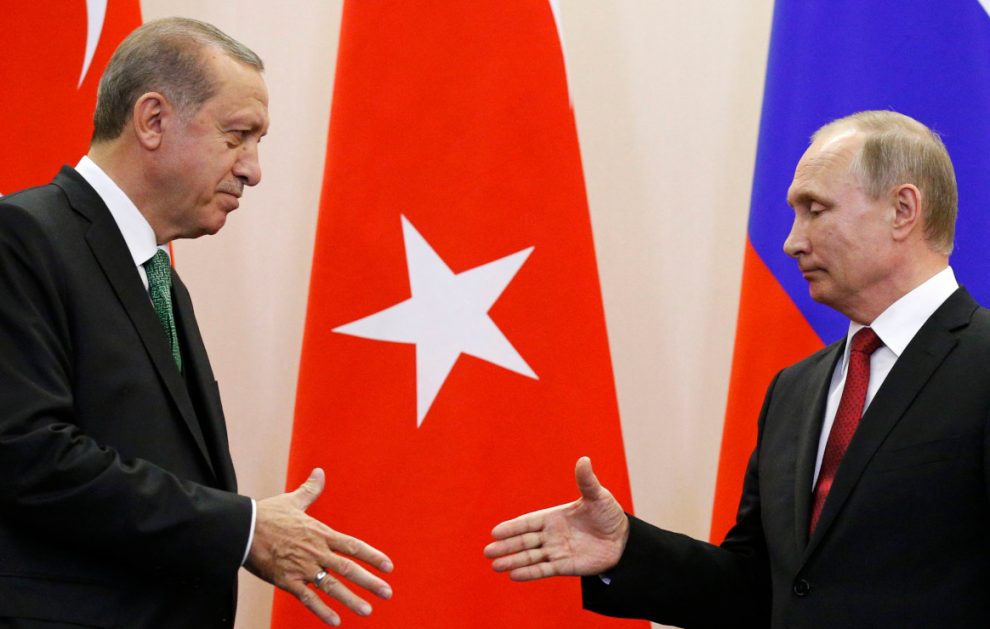The rapprochement between Turkey and Russia is evolving into a different type of partnership. What’s interesting is that Turkey, since it became a NATO member in 1952, was a threat in the eyes of Moscow. According to Russia, Turkey, for years, rather than a neighbour country, was a satellite state dominated and manipulated by the United States – a major rival of Russia.
With President Recep Tayyip Erdoğan’s initiatives, Turkey has started pursuing independent foreign policies, attempting to pave the way for the improvement of interest-based, close relations with Russia. During that normalization period, Turkey, however, downed a Russian war jet in Syria. Despite that, the strained relations following the jet incident managed to get back on track with Russian President Vladimir Putin being the first leader to call Erdoğan in the aftermath of the bloody July 15, 2016 coup attempt. In a short period, another provocative development took place in the Turkish capital as a member of the Gülenist Terror Group (FETÖ) killed Russia’s ambassador to Ankara, Andrei Karlov. The Turkish administration promised to illuminate the case, and Turkish and Russian security forces cooperated in it. The Karlov assassination solely aimed to freeze Ankara-Moscow relations, but it couldn’t do so; instead, the two states became closer than ever.
On Wednesday, Erdoğan flew to the Russian capital to meet with Putin. The headline of the gathering was the future of Syria. The Russian leader thanking Erdoğan for his efforts in developing the bilateral ties is worth mentioning here.
More significantly, Putin reiterated that the Adana Convention signed in 1998 between Ankara and Damascus during the Hafez Assad era is still in place. Before the convention, Assad had expelled PKK leader Abdullah Öcalan from Syria and closed all PKK camps in Syria and Lebanon. The would-be Adana Convention was the official declaration of the Damascus regime recognizing the PKK as a terrorist group. Hence, Putin’s reference to the convention means that it must historically recognize the PKK-linked People’s Protection Units (YPG) as a terrorist group as well.
On the other hand, according to Putin, the Damascus regime should be connected with the “Kurdish groups,” but what he meant by the Kurdish groups wasn’t clear. In other words, it was ambiguous whether he meant the YPG, a notorious group that has persecuted thousands of Kurdish people and displaced them, as the United States recently said or the local Kurdish civilians.
As Erdoğan stated, Turkey and Russia haven’t yet reached a common consensus in the formation of a safe zone in the region. If they had, the road map would be most probably indicated in the Moscow meeting; but the specific points of the plan weren’t in the discussion.
In a nutshell, the future of peace and stability in Syria still depends on initiatives and the mutual cooperation of Turkey and Russia, just as in Idlib. The following process is therefore yet another important test for the two parties.
Source: Daily Sabah







Add Comment